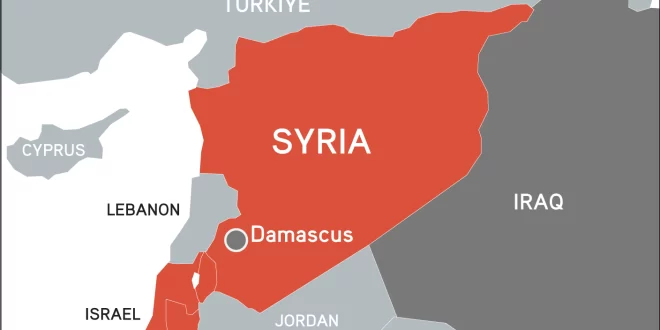In a historic turn of events, Syrian rebels have declared Damascus “liberated,” marking the end of President Bashar al-Assad’s decades-long authoritarian rule. Assad, who has not been seen since rebels entered the capital, is believed to have fled, leaving a fractured nation grappling with an uncertain future.
Rebels Take Control of Damascus
The rebel alliance swept into the Syrian capital with little resistance, seizing key positions, including the notorious Saydnaya Military Prison and the presidential palace.
“Damascus has been liberated, and the tyrant Bashar al-Assad has been overthrown,” a rebel spokesperson announced on state television, as celebrations erupted across the city.
Assad’s Whereabouts Unknown
An intensive search for Assad is underway. Sources indicate rebels are interrogating high-ranking Syrian military officers and intelligence personnel to track his movements. The absence of Assad, who has ruled with an iron grip for over two decades, marks the end of a family dynasty that began with his father, Hafez al-Assad, in 1971.
Prime Minister Signals Cooperation
In a recorded message, Prime Minister Mohammad Ghazi al-Jalali stated the government’s readiness to cooperate with any leadership chosen by the people. He appealed for the preservation of public institutions and safety for all citizens, signaling a willingness to ensure a peaceful transition of power.
Global Reactions and Regional Shifts
The speed of the rebel advance stunned observers and caused a dramatic shift in the geopolitical landscape. Assad’s fall is seen as a blow to Iran’s regional influence, as Tehran had been a staunch ally of the Assad regime.
U.S. President Joe Biden is closely monitoring the situation, while a U.S. official remarked, “This marks the collapse of Iran’s influence across the Middle East.” The potential loss of Syria follows setbacks for Iranian proxies Hezbollah and Hamas in conflicts with Israel.
Scenes of Jubilation
In cities like Aleppo, citizens celebrated in the streets as news spread of Assad’s retreat. Footage shared on social media depicted jubilant crowds waving flags and chanting slogans of freedom.
A Dynasty Ends
Bashar al-Assad rose to power in 2000 after the death of his father, Hafez al-Assad, and ruled Syria with a combination of repression and violence. His regime faced condemnation during the 2011 Arab Spring protests, which spiraled into a devastating civil war that left millions displaced and turned the country into a battleground for international conflicts.
What’s Next for Syria?
The immediate future remains uncertain. Rebels must decide whether to form a unified government or cede leadership to existing officials like al-Jalali. Key rebel leader Abu Mohammad al-Joulani, credited with leading the offensive, has emerged as a potential figurehead.
The fall of Assad’s regime marks the beginning of a new chapter for Syria, one filled with both hope for peace and challenges in rebuilding a war-torn nation. As the dust settles, the world watches to see how this pivotal moment will shape Syria’s future.
 Business Sandesh Indian Newspaper | Articles | Opinion Pieces | Research Studies | Findings & News | Sandesh News
Business Sandesh Indian Newspaper | Articles | Opinion Pieces | Research Studies | Findings & News | Sandesh News



